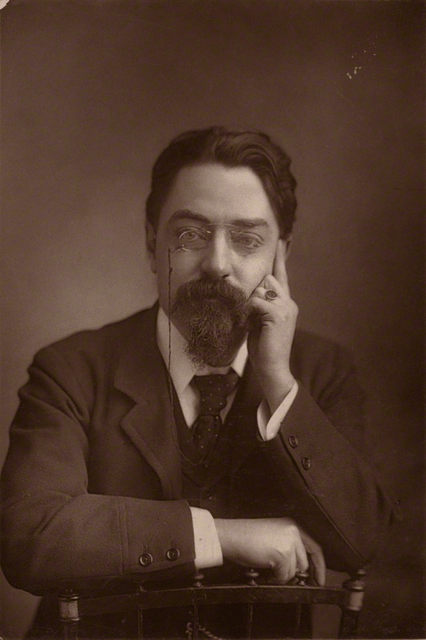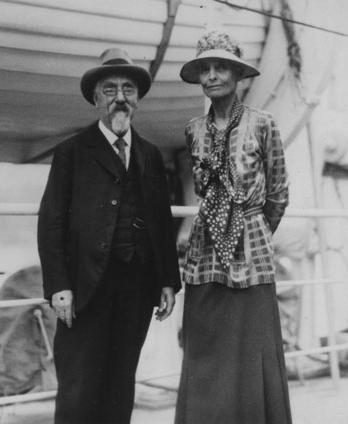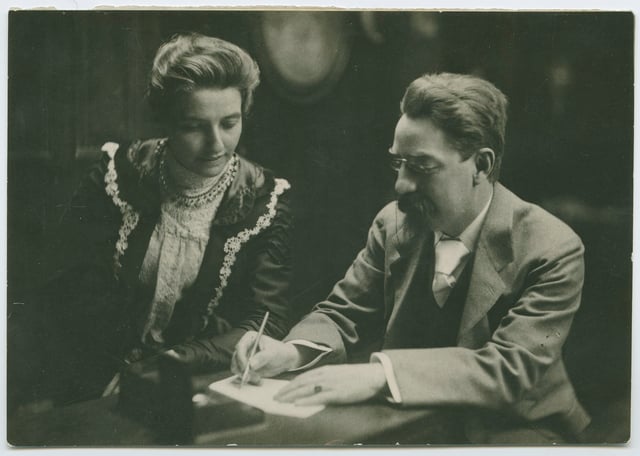Sidney Webb, 1st Baron Passfield

Sidney Webb, 1st Baron Passfield

The Right Honourable The Lord Passfield OM PC | |
|---|---|
| President of the Board of Trade | |
| In office 22 January 1924 – 3 November 1924 | |
| Monarch | George V |
| Prime Minister | Ramsay MacDonald |
| Preceded by | Sir Philip Lloyd-Graeme |
| Succeeded by | Sir Philip Lloyd-Graeme |
| Secretary of State for Dominion Affairs | |
| In office 7 June 1929 – 5 June 1930 | |
| Monarch | George V |
| Prime Minister | Ramsay MacDonald |
| Preceded by | Leo Amery |
| Succeeded by | James Henry Thomas |
| Secretary of State for the Colonies | |
| In office 7 June 1929 – 24 August 1931 | |
| Monarch | George V |
| Prime Minister | Ramsay MacDonald |
| Preceded by | Leo Amery |
| Succeeded by | James Henry Thomas |
| Personal details | |
| Born | (1859-07-13)13 July 1859 London |
| Died | 13 October 1947(1947-10-13)(aged 88) Liphook, Hampshire |
| Nationality | British |
| Political party | Labour |
| Spouse(s) | Beatrice Potter (1858–1943) |
| Alma mater | Birkbeck, University of London King's College London |
Sidney James Webb, 1st Baron Passfield, OM, PC (13 July 1859 – 13 October 1947) was a British socialist, economist, reformer and a co-founder of the London School of Economics. He was one of the early members of the Fabian Society in 1884, who like George Bernard Shaw joined three months after its inception. Along with his wife Beatrice Webb, Annie Besant, Graham Wallas, Edward R. Pease, Hubert Bland, and Sydney Olivier, Shaw and Webb turned the Fabian Society into the pre-eminent political-intellectual society in Edwardian England. He wrote the original, pro-nationalisation Clause IV for the British Labour Party.
The Right Honourable The Lord Passfield OM PC | |
|---|---|
| President of the Board of Trade | |
| In office 22 January 1924 – 3 November 1924 | |
| Monarch | George V |
| Prime Minister | Ramsay MacDonald |
| Preceded by | Sir Philip Lloyd-Graeme |
| Succeeded by | Sir Philip Lloyd-Graeme |
| Secretary of State for Dominion Affairs | |
| In office 7 June 1929 – 5 June 1930 | |
| Monarch | George V |
| Prime Minister | Ramsay MacDonald |
| Preceded by | Leo Amery |
| Succeeded by | James Henry Thomas |
| Secretary of State for the Colonies | |
| In office 7 June 1929 – 24 August 1931 | |
| Monarch | George V |
| Prime Minister | Ramsay MacDonald |
| Preceded by | Leo Amery |
| Succeeded by | James Henry Thomas |
| Personal details | |
| Born | (1859-07-13)13 July 1859 London |
| Died | 13 October 1947(1947-10-13)(aged 88) Liphook, Hampshire |
| Nationality | British |
| Political party | Labour |
| Spouse(s) | Beatrice Potter (1858–1943) |
| Alma mater | Birkbeck, University of London King's College London |
Background and education
Webb was born in London to a professional family. He studied law at the Birkbeck Literary and Scientific Institution for a degree of the University of London in his spare time, while holding down an office job. He also studied at King's College London, prior to being called to the Bar in 1885.
Professional life
In 1895, he helped to establish the London School of Economics, using a bequest left to the Fabian Society. He was appointed Professor of Public Administration in 1912, a post he held for fifteen years. In 1892, Webb married Beatrice Potter, who shared his interests and beliefs.[1] The money she brought with her enabled him to give up his clerical job and concentrate on his other activities. Sidney and Beatrice Webb founded the New Statesman magazine in 1913.[2]
Political career

Sidney Webb and Beatrice Webb
Webb and Potter were members of the Labour Party and took an active role in politics. Sidney became Member of Parliament for Seaham at the 1922 general election.[3] The couple's influence can be seen in their hosting of the Coefficients, a dining club which attracted some of the leading statesmen and thinkers of the day. In 1929, he was raised to the peerage as Baron Passfield, of Passfield Corner in the County of Southampton.[4] He served as both Secretary of State for the Colonies and Secretary of State for Dominion Affairs in Ramsay MacDonald second Labour Government in 1929. As Colonial Secretary he issued the Passfield White Paper revising the government's policy in Palestine, previously set by the Churchill White Paper of 1922. In 1930, failing health caused him to step down as Dominions Secretary, but he stayed on as Colonial Secretary till the fall of the Labour government in August 1931.
Ignoring mounting evidence of the atrocities committed by Joseph Stalin, the Webbs were supporters of the Soviet Union until their deaths. Having reached their seventies and early eighties, their books Soviet Communism: A New Civilisation? (1935) and The Truth About Soviet Russia (1942) give a very positive assessment of Joseph Stalin's regime. Trotskyist historian Al Richardson later described Soviet Communism: A New Civilization? as "pure Soviet propaganda at its most mendacious".[5]
Writings
Webb co-authored, with his wife, a pivotal book on The History of Trade Unionism (1894). For the Fabian Society he wrote on poverty in London,[6] the eight-hour day,[7][8] land nationalisation[9] the nature of socialism,[10] education,[11] eugenics[12] and reform of the House of Lords.[13] He also drafted Clause IV, which committed the Labour Party to public ownership of industry.
References in literature

Beatrice and Sidney Webb working together in 1895
In H. G. Wells' The New Machiavelli (1911), the Webbs, as "the Baileys", are mercilessly lampooned as short-sighted, bourgeois manipulators. The Fabian Society, of which Wells was briefly a member (1903–08), fares no better in his estimation.
In her diary [68] , Beatrice Webb records that they have "read the caricatures of ourselves … with much interest and amusement. The portraits are very clever in a malicious way."[14] She reviews the book and Wells' character in detail, summarising: "As an attempt at representing a political philosophy the book utterly fails …".[15]
Personal life
When Beatrice Webb died in 1943, the casket containing her ashes was buried in the garden of their house in Passfield Corner. Lord Passfield's ashes were also buried there in 1947. Shortly afterwards, George Bernard Shaw launched a petition to have both reburied to Westminster Abbey, which was eventually granted. Today, the Webbs' ashes are interred in the nave of Westminster Abbey, close to those of Clement Attlee and Ernest Bevin.
He and his wife were friends with the philosopher Bertrand Russell.[16]
In 2006, the London School of Economics, alongside the Housing Association landlord Places for People, renamed their Great Dover Street student residence Sidney Webb House in his honour.